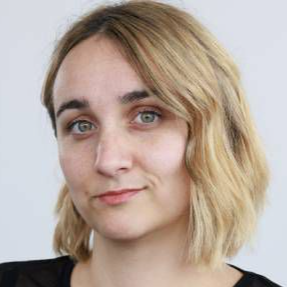The man then lunged at the father and fought with him as neighbours took the child into a nearby house to keep her safe.
The man gave chase, pushing another person out of the way and into a trellis and trying to force his way through the door.
Judge Johnston said the man was yelling that the girl was his daughter, and making other "nonsensical statements".
Further stresses could provoke a relapse.
The man, who has no criminal history, was found not guilty by way of insanity on two counts of assault and one of kidnapping at a hearing several months ago.
Judge Johnston said he suffered from schizophrenia, and at the time of his offending had stopped or reduced his anti-psychotic medication, leading to a relapse.
"Of concern" was the fact the man's father had recognised his son was particularly unwell at the time, but the mental health team still placed him into the community respite care house.
He has been on bail since the offending and in the community since May 25 with no incident.
Judge Johnston said the man was suffering "grandiose religious delusions" at the time and was in a state of "severe psychosis".
When giving evidence to the court, psychiatrist Dr Justin Barry-Walsh expressed concern the man might suffer another relapse if he chose to stop taking his medication. The man has indicated to doctors he believes he does not need to continue taking it.
Barry-Walsh said in a report to the court there was a "fragility" to the man's recovery and "further stresses could provoke a relapse".
Despite this, he and another psychiatrist recommended to the court that the man be treated in the community.
The man is subject to a compulsory treatment order, meaning he is required to take his medication orally, as well as be given an injection by a health professional every three weeks.
Judge Johnston said if the man missed an injection, it would take about a week for his condition to deteriorate to the point of relapse, meaning there should be enough time for him to receive care before he caused harm to members of the public.
He could also be compelled to go to hospital if necessary.
Judge Johnston granted permanent name suppression, saying publication of the man's name may lead to a risk of suicide and would affect the man's rehabilitation.
The man's parents, who he is staying with, have not even told his siblings about what has happened.
The man's third victim - the person who was pushed out of the way as he chased after the child - supported name suppression, saying he "has to be given a chance to sort his life out".
Victim advocate Graeme Moyle, whose brother Colin Moyle was murdered in 2007 by a paranoid schizophrenic man, said there needed to be more accountability for clinicians who released mental health patients back into the community.
Matthew John Ahlquist, 35, was found not guilty of Colin Moyle's murder on the grounds of insanity after he threw boiling water on the 55-year-old, bludgeoned him with a spade and set him on fire.
The horrific killing happened a few weeks after Ahlquist was released from Te Whetu Tawera, an Auckland DHB mental health clinic, despite Ahlquist threatening to kill someone.
What you've got to realize is that the guy was sort of caught before any damage could be done.
Graeme Moyle told the Herald it was difficult to know what the concerns were around the current case, given much of it has been shrouded in suppression orders.
"I think he needs to be in a secure environment until, you know, I hesitate to say clinicians are satisfied that he's safe to release, because I think they're a bit too quick to let people out in the community without sort of robust risk assessment.
"It sort of comes down to them, you know, crossing their fingers, you know, and hoping that something won't go wrong."
He said there was much in the way of support for the offender, but not much for the victims or the community that had to deal with the consequences "if it all goes pear-shaped".
If clinicians were "iffy" about whether a patient would be safe in the community, someone should be with them 24 hours a day, he said. However, he didn't believe mental health at this point had the resources to put such a safety net in place.
He said clinicians should be charged if a patient they released went on to hurt someone, as it would make them "think a little more cautiously before releasing".
He also believed any person found not guilty due to insanity should be detained for a "finite period of time".
"What you've got to realize is that the guy was sort of caught before any damage could be done. You sort of need to think what might have happened to that child had he not been caught."
